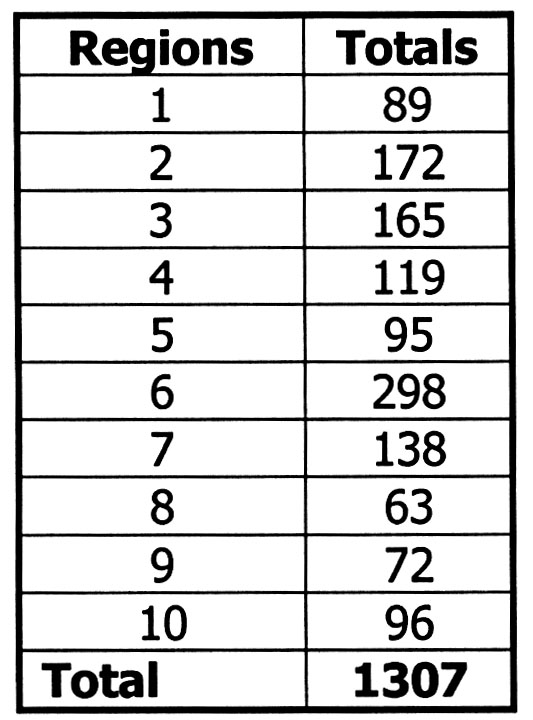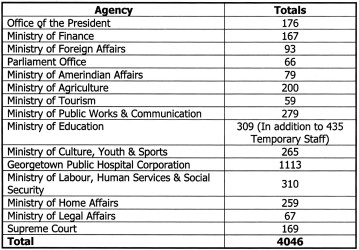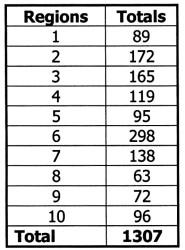Dear Editor,
In an earlier submission I had alluded to the increase in the number and variety of ‘contracted employees’ employed over the five-year period 2009-2013.
I since thought of exploring the National Estimates of 2014 submitted to the National Assembly. The following are extracts from the more significant portions of ‘contracted employees’ of the general staffing of the named agencies for 2014.
Regional Administration
It is submitted that the above proliferation of ‘contracted employees’ warrants intensive investigation, given the fact that each agency is empowered to employ without (exceptionally) an overriding control system, and/or review of the conditions of service contained in the specific contract.
The one known constant is that the majority of ‘contracted employees’ are entitled to gratuity every six months computed at the rate of 22.5% of monthly salary. One is concerned as to which tax regime they are subject, and the formula applied in contributing to the NIS.
What is a legitimate worry as a result of (in many cases) the personal relationships between employers and employees at large, is that even in the case of specific performance contracts, there is the marked tendency to afford them the benefit of annual across-the-board increases in the same manner as their traditional counterparts.
Another matter of concern to the inquirer is whether or not individual performance is appraised in a manner which informs the decision to extend or curtail the contract.
Bear in mind that despite the existence of a formal PSM Appraisal Form, the latter has been totally overlooked by authorities in the recent past, who are barely, if at all, sensitive to the principle and practice of performance management. In their indifference thereto they resort to the comfort, as they see it, of merely doling out annual across-the-board increases – a scenario that connotes but minimal value paid to the individual’s actual performance, particularly of those in the upper job hierarchy, who work beyond the call of duty; with no provision for discriminating towards the indifferent contribution of an ill-disciplined cleaner, maid, or office assistant and others. It is a most demotivating experience for the conscientious employee, while on the whole it provides little or no incentive to greater productivity.
In all this callous treatment of public servants is the substantive aberration known as ‘bunching’. For since the entire salary structure is adjusted annually with the across-the-board increases, and in the absence of personal performance appraisal awards, every employee affected remains at exactly the same point in the adjusted salary scales. The situation is known as ‘bunching’. It explicitly means that barring some exceptional development, the employee’s salary remains at the entry level of the relevant scale for the foreseeable future. The funny thing is that the new recruit, ten or more years later, is awarded that same entry value as his/her counterpart of ten or more years’ experience.
It is in fact highly inappropriate to describe this unacceptable scenario as funny. Instead it demeans the spirit and worth of the human being. It reflects a substantive depth of callousness of one set of human beings towards the other.
The whole environment reflects a considerable management dereliction of normal commitment to its employees – a malodorous condition that will have to be aggressively and competently addressed by the new employers.
Come to think of it, this has been in fact a part of GuySuCo’s management failings, in that despite a plethora of performance appraisal forms, there is still too little respect shown to the conscientious performer.
Yours faithfully,
E B John






